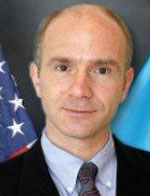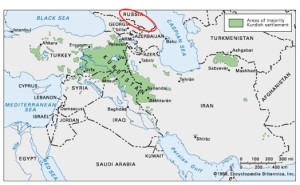In the late 1980s, the leaders of the West promised Soviet General Secretary Mikhail Gorbachev that they would not expand eastward if the Soviet Union pulled out of Eastern Europe and ended the Cold War. That promise was not kept. A triumphal West stuck it to the Soviet Union’s greatly weakened Russian successor by incorporating the former Warsaw Pact countries into NATO and the EU. But that was not enough to sate the lust of the neo-liberal triumphalists in search of a new imperium. Their next move tried to incorporate the Caucasus country of Georgia — a country more a part of Central Asia than of Europe — into the West’s sphere of influence. That turned out to be a bridge too far; the Russians intervened militarily to put a stop to the lunacy.
But events in the Ukraine suggest that stop may have been viewed as a temporary speed bump on the pathway to rolling back Russia’s geography to the years of Ivan the Terrible.





